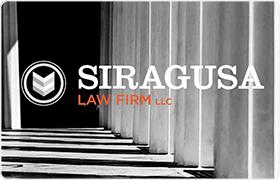Flourtown Child Custody Lawyer, Pennsylvania
Sponsored Law Firm
-
 x
x

Click For More Info:
-
Siragusa Law Firm LLC
678 Route 202/206 Building 5, Suite 5 Bridgewater, NJ 08807» view mapDivorce & Family Law Creative Thinking. Exceptional Results.
At Siragusa Law Firm, we take our responsibility seriously. We are passionate about helping you, making sure to guide you through whatever legal matter you face.
908-218-1100
Includes: Guardianships & Conservatorships, Custody & Visitation
Andrew D. Taylor
Family Law, Child Custody, Divorce, Divorce & Family Law, Child Support
Status: In Good Standing Licensed: 21 Years
Thomas A. Boulden
Estate Administration, Estate Planning, Guardianships & Conservatorships, Adoption
Status: In Good Standing Licensed: 33 Years
 Lynette Siragusa Bridgewater, NJ
Lynette Siragusa Bridgewater, NJ Practice AreasExpertise
Practice AreasExpertise
